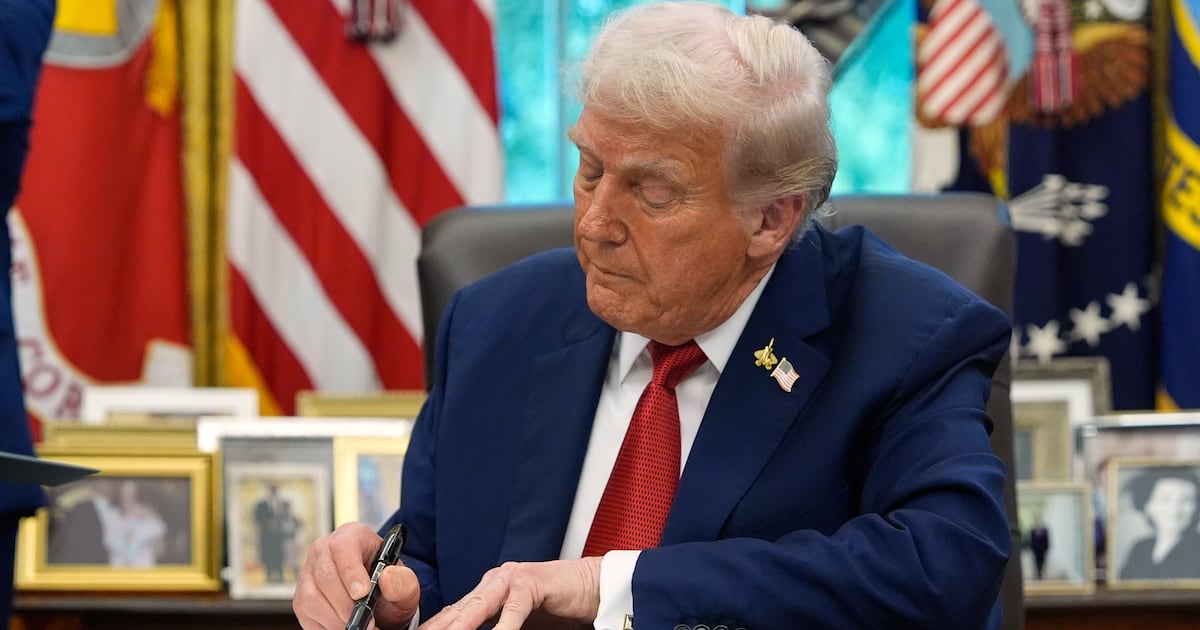US president Donald Trump could renege on the agreement struck with the European Union which capped tariffs on pharmaceutical exports from the bloc at 15 per cent, PwC has said.
Mr Trump announced plans to hit pharmaceuticals with a 100 per cent import tax from October 1st, unless a company is building a pharma manufacturing plant in America.
The announcement applies only to branded medicines, but these make up the vast majority of Irish pharma exports.
The US president did not state whether this 100 per cent tariff rate would apply to European trade, and officials in Brussels and Dublin are scrambling to assess where the threat leaves an EU-US tariff deal agreed earlier this year.
[ Irish and European officials grapple with new Trump pharma tariffs planOpens in new window ]
PwC partner John O’Loughlin, who specialises in covering global trade and customs, said it is still not known whether EU products will fall under the announcement as the legal mechanism through which tariffs would be implemented has not been disclosed.
This aspect, he said, would likely become clear between now and Wednesday, when the tariffs are scheduled to come into force.
“There is potential Ireland and the EU would not be affected by the announcement,” he said. “That has to be clarified. The US administration will need to introduce legislation or issue an executive order between now and October 1st and it is only at that point we will get the detail.”
The “less positive outlook”, he said, is that the agreement that was signed by the EU and the US is “reneged upon”.
“I’m not necessarily sure that would be the case, but we just don’t have the detail at this point,” he said. “Donald Trump uses tariffs as a lever for change. We don’t know what he might be attempting to lever in the background.
“There potentially might be some pharma announcements that have yet to be made in terms of switching manufacturing the US, and he could be trying to accelerate that.
“It could be focused on other jurisdictions rather than the EU to get companies to come to the table. India has a big manufacturing footprint when it comes to pharmaceuticals and India has been very much in the spotlight when it comes to tariffs.”
Niall Cunneen, associate partner for Ireland and the UK at the global business consultancy Sia, said Ireland is “uniquely vulnerable” to any escalation in US tariffs on pharmaceuticals.
“Pharma is not just another industry here – it is the backbone of our export economy, worth tens of billions annually and employing thousands across the country,” he said.
“A sudden imposition of 100 per cent tariffs, even if exemptions apply, would create significant uncertainty for investment decisions and global supply planning. Multinationals cannot operate in an environment where rules shift overnight without clarity.
“For Ireland, the potential risk of this latest tariff announcement is twofold – the immediate exposure of our export flows and the longer-term perception of instability that could divert future projects elsewhere.”
A spokeswoman for the Irish Pharmaceutical Healthcare Association tariffs on medicines would be “harmful” for Ireland.
“They would increase costs, disrupt global supply chains, undermine innovation, and ultimately harm patient access to life-enhancing medicines on both sides of the Atlantic,” she said. “They undermine the global trading environment that supports jobs, investment and competitiveness.
“The EU and US already have a trade agreement in place; urgent discussions are now needed on how to avoid any tariffs on medicines.”
Ireland is a key player in strategic and secure global supply chains that provide medicines to patients in over 170 countries, operated by companies here from Asia, Europe and the United States.
“We urge all policymakers to support these secure supply chains and investment in innovative medicines that provide clear health, economic and societal benefits,” the spokeswoman added.
Minister for Foreign Affairs and Trade Simon Harris said the Government will study the impact of this announcement, which includes a number of exemptions, together with EU colleagues.

